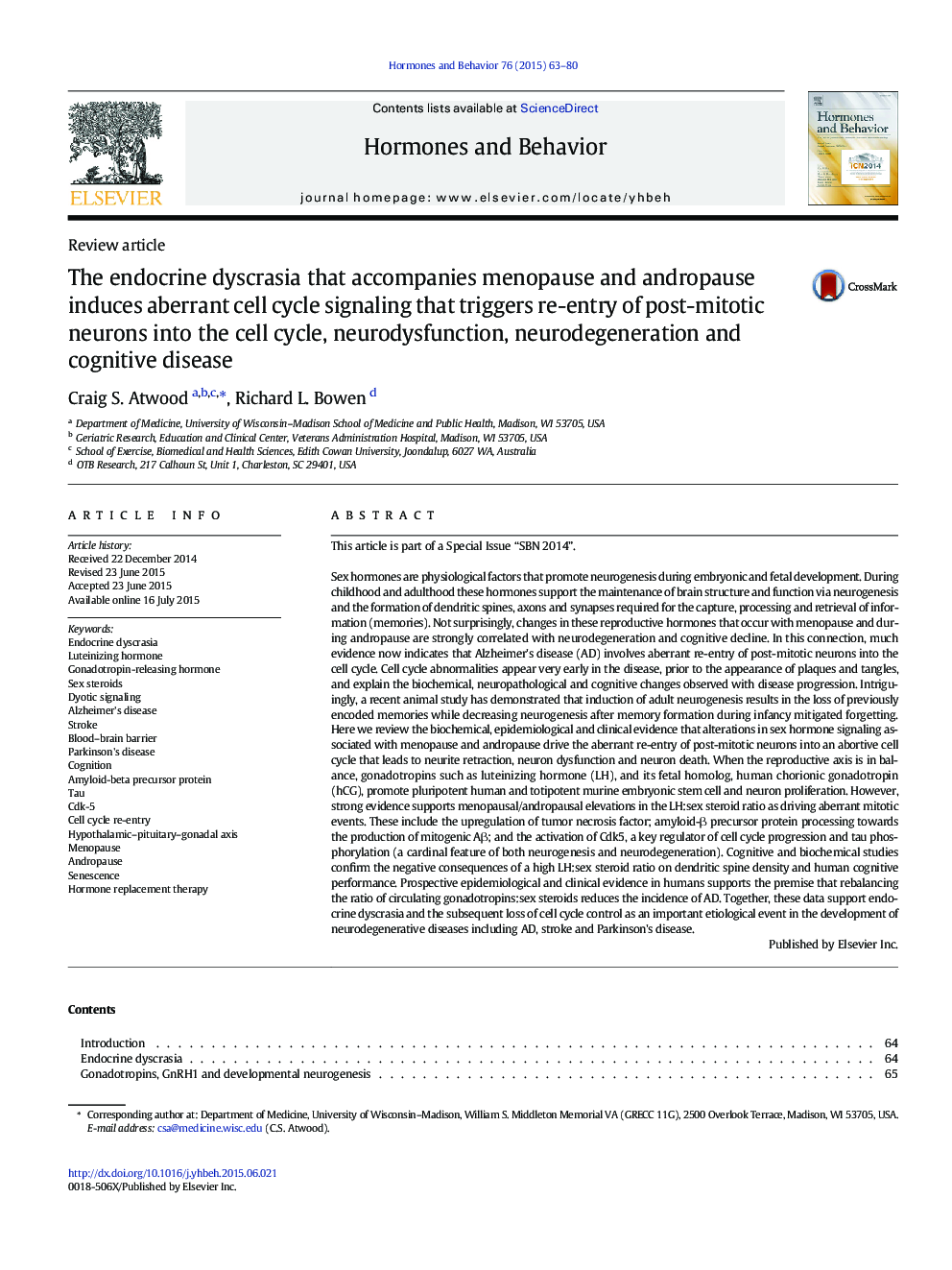| کد مقاله | کد نشریه | سال انتشار | مقاله انگلیسی | نسخه تمام متن |
|---|---|---|---|---|
| 323510 | 540693 | 2015 | 18 صفحه PDF | دانلود رایگان |
• Sex hormones regulate neurogenesis and brain function.
• Induction of neurogenesis results in the loss of previously encoded memories.
• Endocrine dyscrasia drives post-mitotic neurons into an abortive cell cycle.
• Endocrine dyscrasia thereby promotes neurodegeneration and cognitive decline.
• Completely rebalancing the reproductive hormone axis could prevent neurodegenerative diseases.
This article is part of a Special Issue “SBN 2014”.Sex hormones are physiological factors that promote neurogenesis during embryonic and fetal development. During childhood and adulthood these hormones support the maintenance of brain structure and function via neurogenesis and the formation of dendritic spines, axons and synapses required for the capture, processing and retrieval of information (memories). Not surprisingly, changes in these reproductive hormones that occur with menopause and during andropause are strongly correlated with neurodegeneration and cognitive decline. In this connection, much evidence now indicates that Alzheimer's disease (AD) involves aberrant re-entry of post-mitotic neurons into the cell cycle. Cell cycle abnormalities appear very early in the disease, prior to the appearance of plaques and tangles, and explain the biochemical, neuropathological and cognitive changes observed with disease progression. Intriguingly, a recent animal study has demonstrated that induction of adult neurogenesis results in the loss of previously encoded memories while decreasing neurogenesis after memory formation during infancy mitigated forgetting. Here we review the biochemical, epidemiological and clinical evidence that alterations in sex hormone signaling associated with menopause and andropause drive the aberrant re-entry of post-mitotic neurons into an abortive cell cycle that leads to neurite retraction, neuron dysfunction and neuron death. When the reproductive axis is in balance, gonadotropins such as luteinizing hormone (LH), and its fetal homolog, human chorionic gonadotropin (hCG), promote pluripotent human and totipotent murine embryonic stem cell and neuron proliferation. However, strong evidence supports menopausal/andropausal elevations in the LH:sex steroid ratio as driving aberrant mitotic events. These include the upregulation of tumor necrosis factor; amyloid-β precursor protein processing towards the production of mitogenic Aβ; and the activation of Cdk5, a key regulator of cell cycle progression and tau phosphorylation (a cardinal feature of both neurogenesis and neurodegeneration). Cognitive and biochemical studies confirm the negative consequences of a high LH:sex steroid ratio on dendritic spine density and human cognitive performance. Prospective epidemiological and clinical evidence in humans supports the premise that rebalancing the ratio of circulating gonadotropins:sex steroids reduces the incidence of AD. Together, these data support endocrine dyscrasia and the subsequent loss of cell cycle control as an important etiological event in the development of neurodegenerative diseases including AD, stroke and Parkinson's disease.
Journal: Hormones and Behavior - Volume 76, November 2015, Pages 63–80
